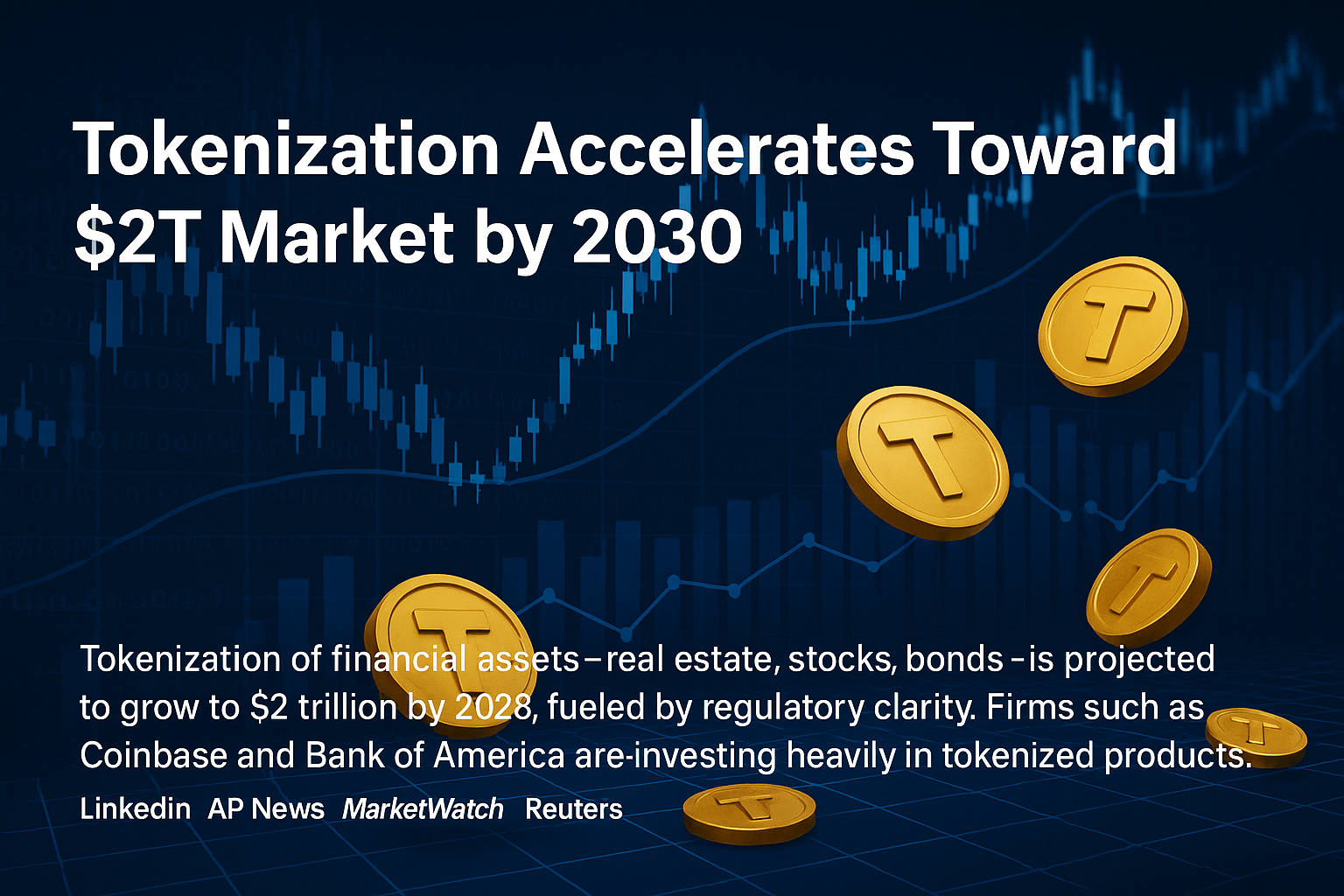In the not-so-distant future, the way we invest, own, and trade financial assets may be fundamentally reshaped by one powerful trend: tokenization.
From real estate and equities to bonds and private assets, the transformation of traditional investments into blockchain-based tokens is rapidly accelerating. According to recent projections, the tokenized asset market could grow to $2 trillion by 2028, on a path that analysts say could push it well beyond that by 2030. This marks a dramatic shift in how value is transferred, owned, and managed globally.
What Is Tokenization?
Tokenization refers to the process of converting real-world assets into digital tokens on a blockchain. These tokens represent ownership or a claim on the underlying asset—be it a share of a building, a corporate bond, or even fine art. Once tokenized, these assets can be traded more efficiently, with reduced settlement times and greater fractional accessibility.
Why Now?
There are several reasons why tokenization is gaining momentum now:
-
Regulatory Clarity: Recent moves by financial regulators in major markets, including the EU, U.S., and Asia, have provided clearer frameworks for the issuance and trading of tokenized assets. This is removing much of the uncertainty that previously slowed adoption.
-
Institutional Interest: Heavyweights like Coinbase, Bank of America, BlackRock, and JPMorgan are increasingly building out tokenization infrastructure. Their participation not only validates the space but also accelerates its maturity.
-
Technology Readiness: Blockchain networks have matured to the point where they can now support complex financial instruments at scale. Platforms like Ethereum, Avalanche, and private chains are being tested and implemented by traditional finance players.
The $2 Trillion Roadmap
MarketWatch, LinkedIn analysts, and Reuters sources have highlighted multiple projections converging on a $2T tokenized asset market within the next 3–5 years. This includes:
-
Real Estate Tokenization: Companies are fractionalizing property ownership, lowering barriers to entry for retail investors.
-
Tokenized Bonds and Equities: Government and corporate debt instruments are increasingly being issued as smart contracts on-chain.
-
Private Funds and Alternatives: Hedge funds and private equity firms are experimenting with tokenized fund shares for greater liquidity and global reach.
The Broader Implications
Tokenization isn’t just about more efficient markets—it’s about democratization. By breaking large assets into smaller, tradable units, it opens doors to investors who’ve traditionally been locked out of high-value markets. It also enables real-time settlements, reduces costs for fund managers, and enhances transparency.
However, challenges remain. Cybersecurity, interoperability between blockchains, and cross-border legal frameworks are all critical issues that will need to evolve in tandem with the technology.
The next decade could witness one of the largest structural changes in the financial system since the emergence of electronic trading. As blockchain continues to evolve from buzzword to business model, tokenization stands out as a tangible, scalable use case that could touch nearly every asset class.
For now, one thing is clear: tokenization is no longer a futuristic concept. It’s a trillion-dollar reality in the making.




